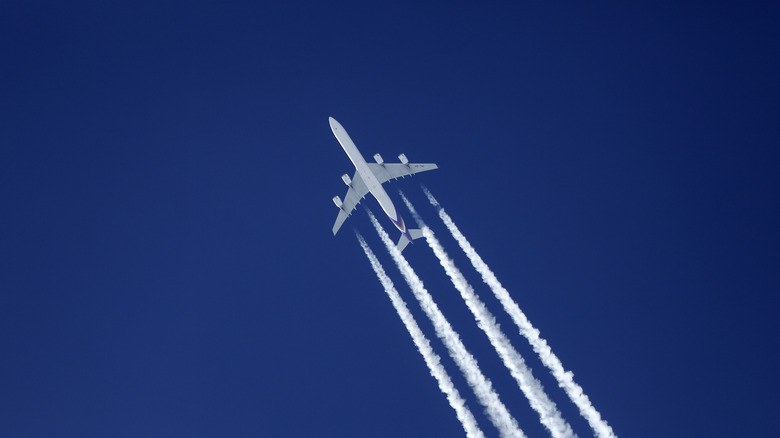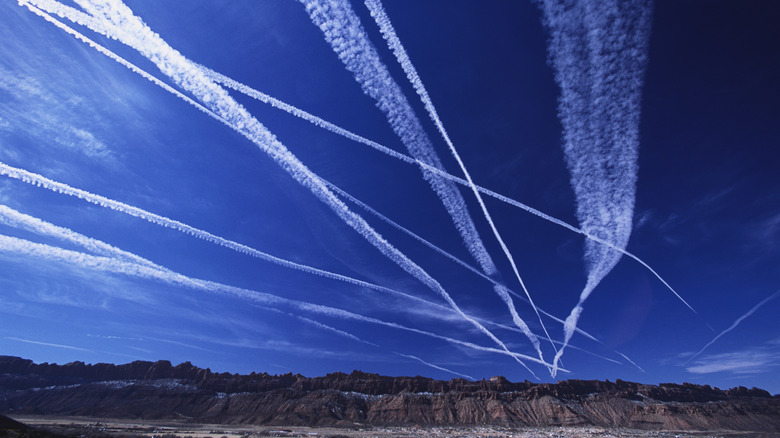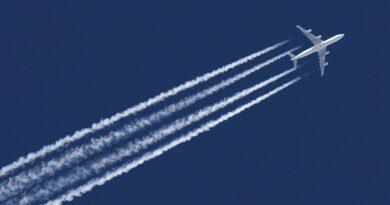The Reason Why Jets Leave White Trails In The Sky
These days, jets soaring in the skies above is a pretty common sight. After all, humanity has come a long way when it comes to air travel over. Now, we have it down to a science, with some of the most advanced fighter jets out there surveying the skies and commercial airliners transporting passengers each and every day. Despite this, not everyone is well-versed in how jets work or the byproducts of their operation. One of the most prominent points of confusion is the white lines that are often seen from the ground trailing behind in-flight jets.
Advertisement
Seeing white streaks across the sky emanating from a jet is normal. These are known as “contrails,” since they’re just, as the name implies, trails of condensation. Jet fuel combustion leads to the creation of water vapor, which forms ice crystals, or condensation, at such high, cold altitudes. Overall, contrails are not harmful to humans, despite the prevailing theory that they’re actually chemical trails, also known as chemtrails. There’s a long-held conspiracy that they contain chemicals or even metals that could pose a threat to public health.
While contrails may not present a danger to humans, not only do they present a big problem for stealth planes that scientists can’t hide, but they do, unfortunately, have a negative impact on the environment.
Advertisement
How contrails affect the environment
As mere clouds of condensation, contrails aren’t dangerous for humans. On the other hand, these trails have been found to affect Earth’s atmosphere. According to the Environmental Protection Agency, contrails increase the level of cloudiness, which influences the Earth’s overall temperature. These clouds reflect incoming solar radiation and contain heat attempting to leave the surface, resulting in warming. Depending on the temperature, contrails either dissipate somewhat quickly or stick around for a while. Their sheer volume in the atmosphere can have a lasting effect on the planet’s climate as unnatural cloud coverage increases.
Advertisement
Then there’s the matter of contrails’ contents, meaning what exactly they’re leaving behind in the Earth’s atmosphere. The combustion of jet fuel leads to the production of carbon dioxide, which is present in the atmosphere already, but when levels are dramatically increased, the atmosphere retains more heat — dubbed the greenhouse effect — causing global temperatures to rise. It has been found that aviation as a whole is to thank for roughly 2.5% of all human-made CO2 emissions around the world.
Sure, contrails don’t present any health risks to people, but to the planet, they can be quite a negative influence.




